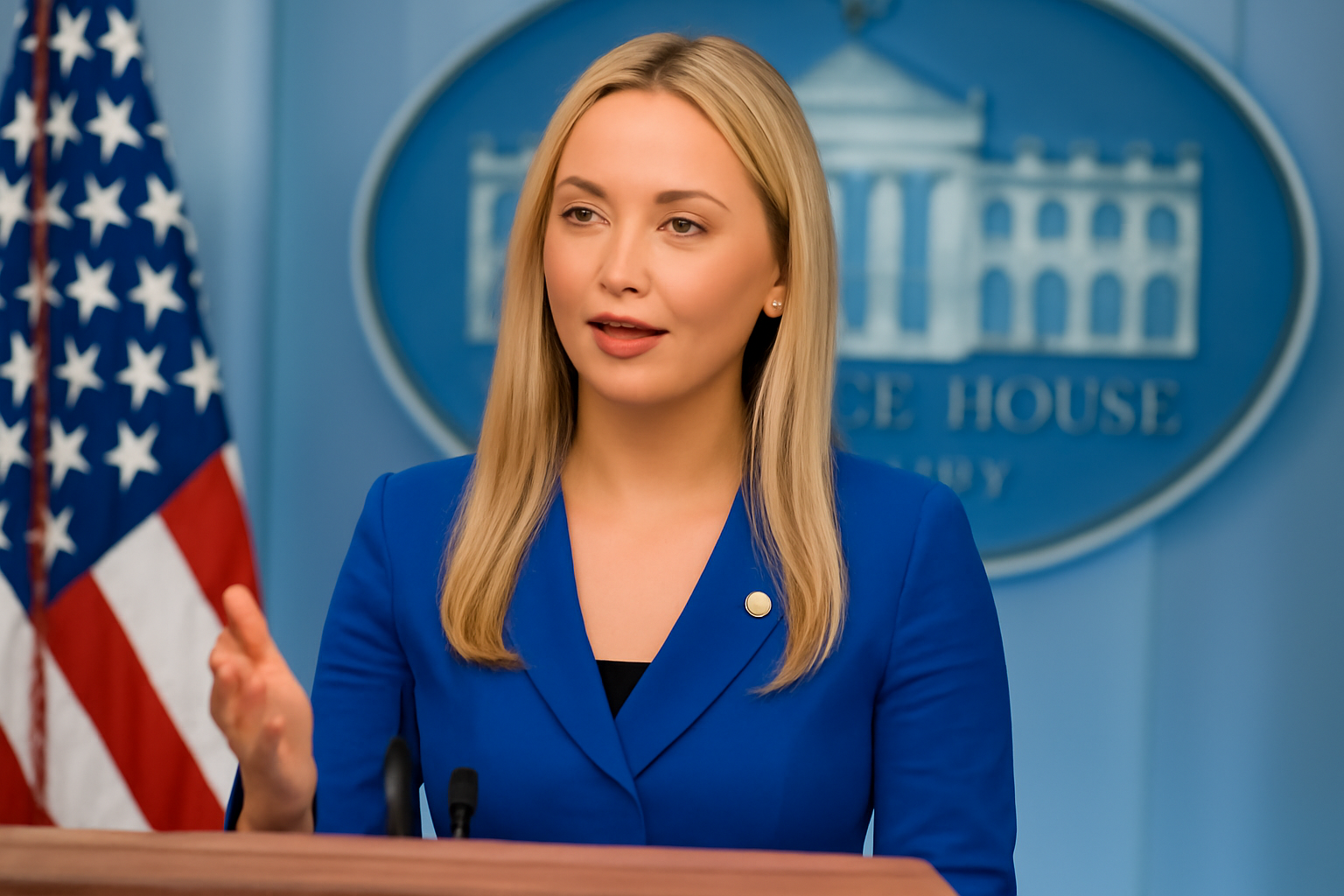
In a recent interview with Fox News, White House press secretary Karoline Leavitt expressed a controversial opinion regarding higher education in the United States. She stated that the country "needs fewer LGBTQ+ graduates from Harvard," reflecting the administration's ongoing tension with the prestigious university.
The tension has escalated in recent months, particularly after the Department of Education decided to freeze billions of dollars in funding to Harvard University. This move came as a response to the university's defiance of certain directives from the Trump administration concerning diversity, equity, and inclusion policies, as well as its stance on peaceful protests. Furthermore, the administration has taken the unprecedented step of banning Harvard from enrolling international students, intensifying the conflict between the government and the institution.
On May 26, during her conversation with Fox News, Leavitt elaborated on the administration's position, stating, "The president is more interested in redirecting taxpayer money to trade schools and state programs that align with American values. These institutions focus on developing essential skills through apprenticeships and vocational training for professions like electricians and plumbers."
She added, "We require more skilled tradespeople in our country, and fewer graduates focused on LGBTQ topics from Harvard University. This reflects our administration's priorities."
Despite Leavitt's comments, it's important to note that Harvard University does not offer a degree specifically in "LGBTQ+" topics. According to College Raptor, the most popular majors at Harvard include Econometrics and Quantitative Economics, Social Sciences, Computer Science, Political Science and Government, and Applied Mathematics. Interestingly, women represent the majority in only one of these top five degree programs.
Harvard, like many other institutions, provides a major and minor in Studies of Women, Gender, and Sexuality. This program has produced graduates who have significantly contributed to various fields. Alumni have pursued careers in law, advocating for rights and policies within organizations such as the U.S. Embassy in Accra, Ghana, and the NAACP. Others have served in the U.S. 10th Circuit Court of Appeals, and some have worked with GLBTQ Legal Advocates & Defenders, the Ms. Foundation for Women, and even contributed to presidential speechwriting. Additionally, these alumni have authored books and participated in educational programs like Teach For America, teaching at various educational levels.
The impact of these graduates underscores the importance of diverse educational backgrounds in addressing complex societal challenges. While the administration emphasizes vocational training and skills, the contributions of those with degrees in gender and sexuality studies highlight the value of a broader educational spectrum.
The discussion surrounding skills and education priorities remains a polarizing issue. On one hand, there is a clear need for skilled trade professionals, which vocational programs and apprenticeships effectively address. On the other hand, the role of higher education in fostering critical thinking and addressing social issues is equally critical.
The Broader Implications
Leavitt's statements and the administration's actions could have far-reaching implications for educational institutions across the country. The potential shift in funding priorities towards vocational training may influence how universities structure and promote their programs.
Educational institutions might need to balance these funding priorities with maintaining comprehensive programs that encourage diversity of thought and prepare students for a variety of career paths. This balance is essential for fostering innovation and addressing both economic and social needs.
As this debate continues, stakeholders from various sectors, including education, government, and industry, will likely engage in discussions to determine the most effective strategies for preparing future generations. The challenge lies in supporting a workforce that is not only skilled but also capable of understanding and addressing the nuances of an increasingly complex world.
Ultimately, the conversation around education and career preparation is about more than just funding. It involves recognizing the value of different educational paths and how they contribute to a well-rounded and versatile society. The goal should be to create an environment where diverse perspectives and disciplines can thrive, ultimately driving progress and innovation.
The dialogue surrounding education policies will likely continue to evolve, reflecting the changing needs of society and the economy. As such, it remains crucial for educational institutions and policymakers to collaborate in shaping an educational landscape that meets these demands while upholding core values of inclusivity and opportunity for all.
Related Posts
Triumphant Trans Woman Wins Legal Battle and Inspires Others to Stand Up for Their Rights
Breaking new ground: a landmark victory in transgender rights After battling in courtrooms and enduring endless challenges, Diana Portillo, a transgender woman, has secured a monumental victory in her decade-long fight against workplace discrimination. The result? Nearly $1 million awarded in a historic settlement. But this isn't just a win on paper—it represents a powerful precedent in combati [...]
Pride Month in Latin America: Protests and Demands for Equality
**Celebrating Pride and advocating LGBTQ+ rights in Latin America** Pride Month in Latin America was a lively mix where celebration met activism. Communities united, not just throwing a party but making a stand—demanding equality and pushing governments toward better protection and rights recognition. Throughout Latin America, pride events erupted in marches and cultural displays, each with a c [...]
Transgender Erasure Actions Implemented by National Park Service
```html Trump administration's impact on national park service and transgender recognition The Trump administration made notable moves in undermining transgender representation, which included directing agencies like National Park Service not include "T" and "Q" when they refered “LGBTQ” in any official communication. This move seems part a broader plan by this administration aimed at reducin [...]